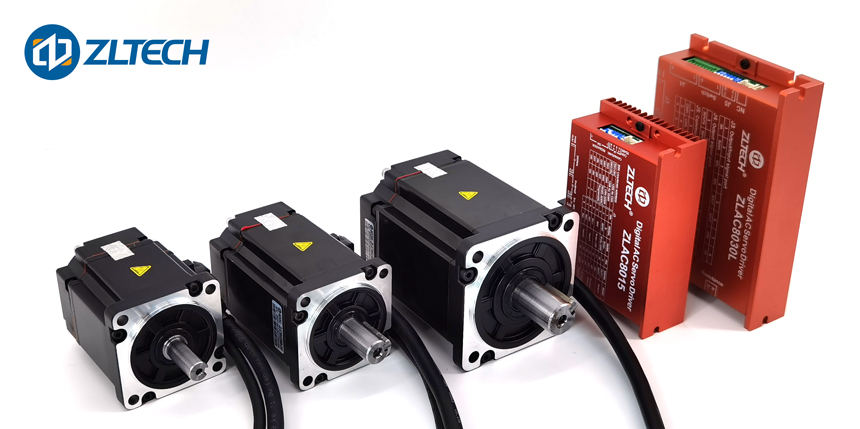1.Introduction of Servo Motor
The servo motor can control the speed and position accuracy very accurately, and can convert the voltage signal into torque and speed to drive the control object.
The rotor speed of the servo motor is controlled by the input signal and can respond quickly. In the automatic control system, it is used as an actuator.It has the characteristics of small electromechanical time constant, high linearity, starting voltage, etc., and can convert the received electrical signal into angular displacement or angular velocity output on the motor shaft.
Servo motors are mainly divided into DC and AC servo motors. The main feature is that when the signal voltage is zero, there is no self-rotation phenomenon, and the speed decreases uniformly with the increase of torque.
2.Classification of Servo Motor
Servo motors are divided into AC servo motors and DC servo motors, which are widely used in the electromechanical industry.
Many customers don't know the difference between DC and AC servo motors, and they don't even know whether they should use DC or AC servo motors. Today we will share about the difference between AC and DC servo motors and their respective application fields, so that everyone can have a better understanding and facilitate future selection.
3.Comparison of Advantages and Disadvantages
(1) The following are the advantages of AC servo motors: Good speed control characteristics, smooth control in the entire speed range, almost no oscillation, high efficiency of more than 90%, less heat generation, high-speed control, high-precision position control (depending on the encoder accuracy), stable operation, good controllability, fast response, high sensitivity and strict nonlinearity index of mechanical characteristics and adjustment characteristics. Within the rated operating area, it can achieve constant torque, low inertia, low noise, no brush wear, and maintenance-free (suitable for dust-free and explosive environments).
The following are the advantages of AC servo motors:Disadvantages: The control is more complicated, the drive parameters need to be adjusted on the spot to determine the PID parameters, and more connections are required.
(2) The following are the advantages of DC servo motors: DC servo motors can be divided into brushed and brushless motors. Brushed motors have low cost, simple structure and simple operation, and are suitable for ordinary industrial and civil occasions with low cost budget requirements. , and the main features of the brushless motor are fast response, high efficiency, small size, light weight, and stable torque.
The following are the disadvantages of AC servo motors: Speed limit, brush commutation, prone to wear particles (Not suitable for dust-free and explosive environments) .
4.Difference in the Field of Use
DC servo motor: DC motors are used in many fields, such as medical equipment, instrumentation, chemical industry, home appliances and other fields.
AC servo motors: Some have relatively high requirements on position, control accuracy, speed and torque, and need to use AC servo motor. Such as printing equipment, laser processing, robots, machine tool equipment, manipulators, automated production lines and so on.

Shenzhen Zhongling Technology Co., Ltd. is an enterprise specializing in the production, manufacture and development of in-wheel motors that provides in-wheel motor products and other accessories for robots for a long time. in a leading position. And has always adhered to the concept of continuous innovation to bring customers the best products, a complete sales research and development system, to provide customers with the best buying experience. I hope we can accompany the rapid development of the robot industry. 
Post time: Feb-06-2023
